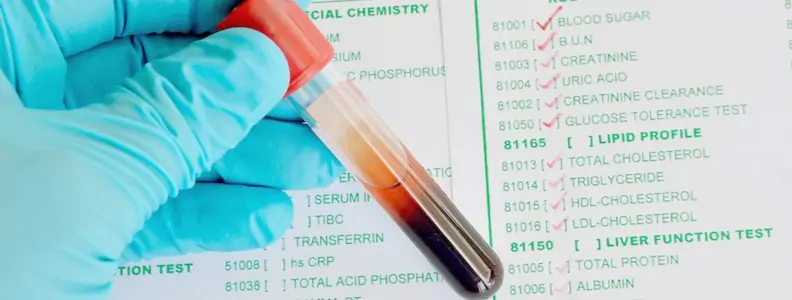As healthcare continues to evolve, we have found ourselves in a transitioning era where more and more medical doctors are looking into functional medicine. But as patients, understanding the fundamentals of functional medicine can be tricky, as most patients are only accustomed to 5-minute doctor interactions that are relatively common among traditional medicine practitioners.
Functional medicine is sometimes mistaken for alternative medicine, and while that misconception has some value to it, it’s not the whole picture. Looking into the different variables between functional medicine and traditional medicine can give us a better outlook and understanding of what these two practices truly entail.
What is Functional Medicine?
Functional medicine focuses on a comprehensive approach to wellness. Through functional medicine, one condition can have many causes. Just as one cause can cause many conditions. The pure essence of functional medicine relies on identifying the root cause of the issues presented at any given point in time.
Functional medicine believes that the manifestation of each symptom, cause, and condition are the result of a myriad of elements including genes, lifestyle, and environment. Only by considering all the elements present, the right diagnosis and treatment can provide symptom suppression and relief.
The idea behind functional medicine is to provide an individualized, scientific approach to total wellness, which is precisely what the biostation supports.
What is Traditional Medicine?
With its long history, traditional medicine is what most people know about health care. In essence, traditional medicine encompasses the skills, practices, and knowledge based on the experiences, beliefs, and theories of different cultures. Traditional medicine has been used to prevent, diagnose, improve, and treat physical and mental illnesses for decades.
Traditional medicine deals with specific diagnosed conditions and then proceeds to analyze such condition based on its pathophysiology and the effects it can have on the body. Basically, the purpose of traditional medicine is to control that specific condition through pharmaceutical medications, surgery, or other approaches.
Instead of assessing a diagnosis through all the potential signs, symptoms, and environmental factors, traditional medicine follows a guideline of possible scenarios and what has worked in the past to treat these conditions.
the biostation’s Functional Medicine Approach vs. Traditional Medicine
There are numerous different points to analyze when it comes to comparing the effects of functional medicine vs. traditional medicine, both at a health level and a patient-doctor interaction level.
Functional Medicine: From the moment you start filling a functional medicine assessment, also known as the Functional Medicine Matrix, the approach here is to build up your medical history based on your lifestyle. This assessment often includes questions about:
- Diet
- Mood
- Digestive health
- Detoxification
- Food sensitivities
- Environmental factors
- Exercise
- Dental health
- Water consumption
- Relationships
- Stress levels
- Coping skills
- Sleep
The functional medicine assessment is designed to give doctors at the biostation insight into the patient’s life, not their condition. As we said before, functional medicine believes one condition can mean many causes and one cause can mean many conditions.
Traditional Medicine: Most adults will be familiar with the traditional medicine health questionnaires. These are often filled previous to your interaction with the doctor and typically focus on the condition itself, rather than the patient’s lifestyle. A traditional medicine health assessment includes questions like:
- Previous conditions
- Current symptoms
- What makes symptoms better or worse
- Family history
- Medications
Notice these questions focus on the disease itself. Sometimes traditional medicine doctors don’t even read these questionnaires, or will only ask generic medical history questions.
Functional Medicine: One of the most significant differences between these two approaches is the time doctors spend with patients. At the biostation, our functional medicine approach allows us to spend at least 1.5 hours with our patients to make sure we’re able to offer a comprehensive approach to wellness and consider all the variables that are possibly interfering with our patient’s health.
Traditional Medicine: Believe it or not, today, the average medical appointment lasts about 7 minutes. This doesn’t come as a surprise for many since they’ve experienced this many times as doctors try to go through their symptoms as quickly as possible, sometimes not even asking about previous treatments or conditions.
Functional Medicine: By looking at wellness from a more holistic perspective, functional medicine doctors use comprehensive diagnostic testing to measure every possible marker that can help us make informed decisions to help you optimize your health. At the biostation, our bioID performance panel measures over 40 biomarkers, our advance food, and allergy testing checks for over 25 foods and 36 inhalants to identify allergy triggers.
Traditional Medicine: When a patient’s symptoms fall under a specific condition or pre-existing diagnosis, sometimes traditional medicine doctors won’t even perform diagnostic tests to confirm the diagnosis. Their results are based on your description of symptoms, the signs present at the moment, and a long list of pre-existing conditions that basically describe your symptoms.
The Future of Health Care
Even at the biostation, our once conventional doctors understood the importance and impact functional medicine could offer patients and made an absolute transition to functional medicine. The future of healthcare, the way we look at it at the biostation, fall under the premise that more people are interested in rediscovering what total wellness feels like and that through our personalized medical approach we can help our patients reach that wellness level.
 East Delray, Florida
East Delray, Florida West Delray, Florida
West Delray, Florida The Boca Raton, Florida
The Boca Raton, Florida Midtown Miami, Florida
Midtown Miami, Florida Carillon Wellness Resort
Carillon Wellness Resort  Williams Island
Williams Island  Midtown Tampa, Florida
Midtown Tampa, Florida Life Time
Life Time Grand Wailea
Grand Wailea  NOW OPEN
NOW OPEN  COMING SOON
COMING SOON 
